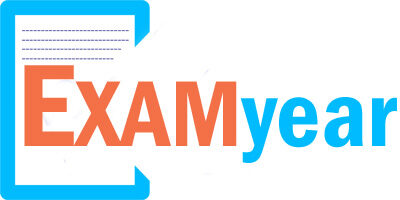Cloze Test for SBI PO
Download the Cloze Test for SBI PO Previous Papers. Applicants can check the State Bank of India PO Old Cloze Test Papers provided below. You can find free download links of State Bank of India PO Exam Previous Question Papers on Cloze Test.

Aspirants can use these SBI PO Cloze Test Solved Papers as a reference. Go through the below sections to get Cloze Test for SBI PO Exam Pattern in addition to the Previous Year Question Papers. The SBI PO English language cloze test paper is given here.
Also, check the Cloze Test for SBI PO Pattern. Also, download the Cloze Test for SBI PO Model Question Paper Pdf link in the section following.
SBI PO English Language Cloze Test Questions
Directions: In the following passages there are blanks, each of which has been numbered. These numbers are printed below the passage and against each, five words are suggested, one of which fits the blank appropriately. Find out the appropriate words.
Cloze Test Practice Set |
Exercise – 1
Bret Bonson loved animals ———1——— on a family owned Zoo. He had grown up caring for antelope, deer and wildcats. He was ———2————–, at times stubbornly, protective. Once, when a tiger cub was born with a deformed leg, the local veterinarian and Bret’s parents ———-3——— the animal would never live a full life. Even so, the boy bottle-fed the cub and cared for it. ——–4——- Bret’s mothering, the cub died, but Bret’s mothering ——–5——— lived on. He worked at a Safari park where, in 1980, he trained his first African elephant and found his true ——–6————. From the beginning Bonson was —————7————- by elephants. They have the ——–8———- force to uproot trees and can outrun the fastest human sprinter. But they also have ————9———- fine motor skills. The same trunk that could ———-10——— the front end of an automobile or fracture a predator’s skull could gently ———11——– a peanut from the fingers of a small child.
1. 1) created 2) constructed 3) built 4) erected 5) raised
2. 1) methodically 2) carefully 3) fiercely 4) suitably 5) actually
3. 1) believed 2) valued 3) expressed 4) imagined 5) exhibited
4. 1) Until 2) Unless 3) Instead 4) Despite 5) Although
5. 1) belief 2) instinct 3) love 4) passion 5) care
6. 1) companion 2) attitude 3) calling 4) friend 5) abode
7. 1) absorbed 2) alarmed 3) attacked 4) attached 5) awed
8. 1) empowered 2) brute 3) tall 4) high 5) exhibited
9. 1) domestic 2) durable 3) devastating 4) delicate 5) dubious
10. 1) hoist 2) puncture 3) disturb 4) attack 5) deflate
11. 1) protect 2) tender 3) abandon 4)pluck 5) touch
Exercise – 2
After ten years of ——–1——- inflation, prices have spiked 7.5% in the third week of July. This looks scary—after all, Indians had got used to prices crawling up by 2% in the last two years, and a 10-year average inflation rate of about 5%—but you shouldn’t worry. This burst of inflation is the result of three factors that have come together unexpectedly, are unlikely to ———-2——– for long and are unlikely to ——-3——— up together again: a(n) ———4——- rise in global oil prices, a monsoon that arrived late and a spike in global metal prices. North Sea crude has crossed $22 per barrel, driven up by low petroleum ————-5———- and soaring demand in the US as war production heats up. Oil markets are also spooked by the ———-6——— of Russian oil supplies falling on the back of the Yukos Sibneft probe. There’s little that the government can do to ——–7——— users from soaring oil prices indeed, it shouldn’t, if it wants to ——–8——— efficiency. Higher transport costs have pushed up rates of vegetables and fruits’. Farm produce could also get affected by rains that arrived too late for kharif sowing. China is ——-9——– up steel and other metals from all over the world to ——-10——– a construction boom ahead of the 2008 Olympics, making metal prices soar all over the world, and sparking inflation in India.
1. 1) mere 2) moderate 3) retarding 4) vehement 5) dull
2. 1) obstinate 2) constitute 3) persist 4) repeat 5) normalize
3. 1) go 2) scramble 3) mount 4) yield 5) crop
4. 1) sustained 2) suspicious 3) horrific 4) erratic 5) favourable
5. 1) lists 2) trades 3)services 4) inventories 5) details
6. 1) prospect 2) progress 3) view 4) extent 5) deposit
7. 1) support 2) ignore 3) propel 4) prolong 5) insulate
8. 1) position 2) promote 3) process 4) pass 5) form
9. 1) hurrying 2) passing 3) pairing 4) gobbling 5) throwing
10. 1) keep 2) make 3) feed 4) grow 5) fight
Exercise -3
India’s ——–1——– over the past half century since independence has been unique and ———2——- in many ways. Yet the record is ———-3——– in relation to what the country set out to achieve and could certainly have been ————4——–. It is ———-5——— to look at both sides; the alternative is to be ———6——— down by unrelieved gloom or unwarranted ———-7——–. The fact is that after eight 5-year plans, about 40 per cent of population is ——8——– below the poverty line. The human development indices are —–9——— low, placing India at the 126th position in the world table, far below many countries that came into ———-10———- much later than it did.
1. 1) development 2) domination 3) predicament 4) history 5) excellence
2. 1) dubious 2) insignificant 3) desperate 4) special 5) commendable
3. 1) underplayed 2) accomplished 3) tampered 4) noteworthy 5) exaggerated
4. 1) proposed 2) futile 3) impracticable 4) necessary 5) suggested
5. 1) proposed 2) futile 3) impracticable 4) necessary 5) suggested
6. 1) laid 2) struck 3) cooled 4) weighed 5) brought
7. 1) progress 2) debating 3) meticulousness 4) haste 5) complacency
8. 1) much 2) still 3) obviously 4) found 5) far
9. 1) deplorably 2) admirably 3) surprisingly 4) not 5) amusingly
10. 1) world 2) being 3) independence 4) compete 5) India
Exercise – 4
Gandhiji once said, “I would say that if the village perishes, India will perish too. India will be ——–1——- more India. Her own mission in the world will get ———2——-. The ———3———- of the village is possible only when it is no more ————4——–. Industrialisation on a mass scale will ———5——- lead to passive or active exploitation of the villagers as the problem ——–6———- competition and marketing come in. Therefore, we have to ———–7——– on the village being self-contained, manufacturing mainly for use. Provided this character of the village industry is ———-8——— there would be no objection to villagers using even the modern machines and tools that they can make and ——–9———- to use. Only, they ———10——— not be used as a means of exploitation of others.”
1. 1) certainly 2) scarcely 3) much 4) no 5) any
2. 1) lost 2) extension 3) elevated 4) flourished 5) jeopardy
3. 1) rehabilitation 2) pruning 3) revival 4) devastation 5) atonement
4. 1) denuded 2) exploited 3) contaminated 4) populated 5) mined
5. 1) passionately 2) surprisingly 3) scarcely 4) never 5) necessarily
6. 1) forming 2) enhancing 3) between 4) of 5) with
7. 1) concentrate 2) ponder 3) imagine 4) ensure 5) decide
8. 1) regained 2) neglected 3) maintained 4) thwarted 5) abolished
9. 1) prepare 2) afford 3) hesitate 4) propose 5) plan
10. 1) can 2) could 3) need 4) would 5) should
Exercise – 5
Man in his ———1———– of nature and universe has made the world ———-2———, polluted. The air we breathe is polluted, the water we drink is ————-3———. There is ——–4———- felling of trees, clearing of jungles, ———5———- natural barriers like the mountains and drying up the oceans by way of ———–6———-, This ———-7——– of nature by man is a grave mistake for which mankind has to pay the price. Rapid industrialization means ———-8——— the industrial effluents into the rivers and seas. The river water has turned murky. Marine life has been ——–9———-. The toxic chemicals have made the air that we breathe polluted. Pesticides and insecticides sprayed on plants and the chemicals and fertilizers used for ———-10———– plant yield have poisoned our food. Hence what we eat today has high toxic ————11——–. Nature’s plenty fullness is a heritage not to be ———-12—— with impunity. It must be conserved for future generations or its ———-13———- will extinguish all.
1. 1) pursuit 2) view 3) conquest 4) victim 5) want
2. 1) foul 2) diluted 3) poor 4) precarious S) critical
3. 1) disturbed 2) pure 3) counterproductive 4) suffocated 5) contaminated
4. 1) dubious 2) wanton 3) careful 4) planned 5) useless
5. 1) attacking 2) projecting 3) cutting 4) blasting 5) sizing
6. 1) reclamation 2) inhabitation 3) stabilization 4) destruction 5) damage
7. 1) provocation 2) adventure 3) vandalism 4) abundance 5) evasion
8. 1) relocating 2) divulging 3) menacing 4) culminating 5) diverting
9. 1) evaporated 2) endangered 3) devalued 4) eliminated 5) forfeiting
10. 1) managing 2) developing 3) maintaining 4) doubling 5) minimizing
11. 1) damage 2) variable 3) content 4) yield 5) refuge
12. 1) squandered 2) preserved 3) doubled 4) engulfed 5) coerced
13. 1) equilibrium 2) existence 3) failure 4) proportion 5) bankruptcy


